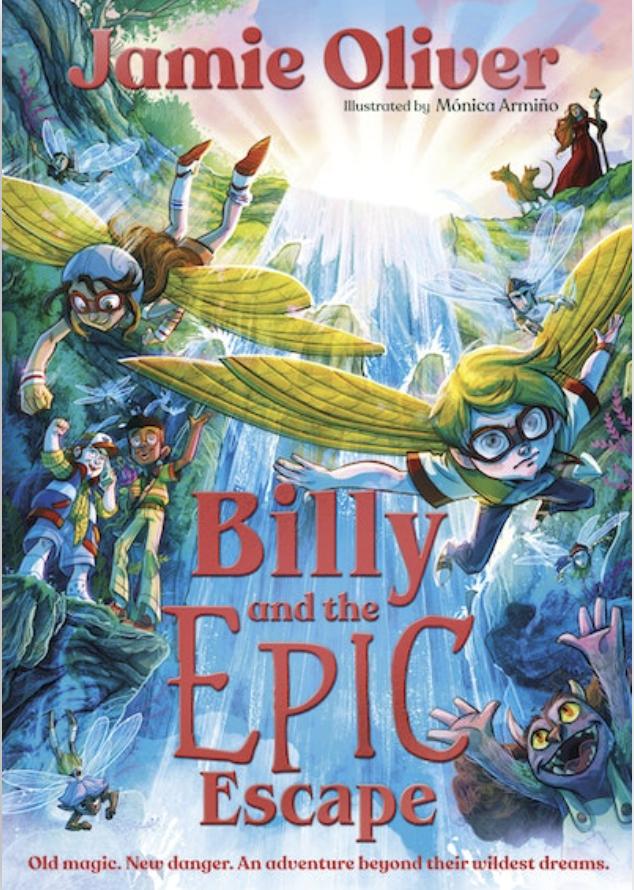Cultural Sensitivity in Literature: Lessons from Jamie Oliver
Discover how Jamie Oliver's book backlash underscores the vital importance of cultural sensitivity and authentic representation in storytelling.

Key Points
- Jamie Oliver
withdrew his children's book after backlash from First Nations communities, highlighting severe issues of cultural insensitivity.
- The lack of consultation with Indigenous voices before publication raised concerns about perpetuating harmful stereotypes and historical inaccuracies.
- This incident emphasizes the need for authors and publishers to engage authentically with marginalized communities to ensure respectful storytelling.
In recent weeks, a significant controversy has emerged surrounding British celebrity chef Jamie Oliver's children's book, Billy And The Epic Escape. Following a wave of backlash from First Nations communities in Australia, Oliver has officially withdrawn the book from sale, acknowledging the hurt it has caused. This incident demonstrates the critical importance of cultural sensitivity in literature, especially when depicting marginalized communities.

Oliver's book contained a subplot centered on a First Nations girl living in foster care, who becomes the victim of a kidnapping by a villain. This narrative sparked severe criticism from organizations such as the National Aboriginal and Torres Strait Islander Education Corporation (NATSIEC), which condemned the portrayal as damaging and disrespectful. They argued that the book contributed to the “erasure, trivialisation, and stereotyping of First Nations peoples and experiences”.
The Role of Consultation in Storytelling
A core issue with Oliver's book stemmed from the lack of consultation with Indigenous communities during the writing process. When storytelling intersects with cultural representation, it is vital to engage with those communities authentically and respectfully. Unfortunately, this oversight not only fueled outrage but also raised awareness regarding the larger problem of cultural appropriation in literature.
Sharon Davis, NATSIEC's chief executive, highlighted the detrimental implications of a chapter titled "To Steal a Child", arguing that it reinforces negative stereotypes about Indigenous families. Such portrayals risk perpetuating perceptions that First Nations communities are neglectful or easily swayed by monetary incentives. These are damaging stereotypes that have long been used to justify injustices faced by Indigenous peoples, including the forced removal of children—a dark chapter in Australia’s history known as the Stolen Generations.

Reflecting on Accountability and Responsibility
The backlash faced by Oliver serves as a reminder that public figures must be held accountable for their work. With a platform comes the responsibility to create content that does not perpetuate historical inaccuracies or cultural insensitivity. For many, the rapid response by Oliver to withdraw the book and his public apologies demonstrate a willingness to learn. Yet, the real challenge lies in the actions taken post-incident.
Penguin Random House UK also acknowledged its failure in not consulting Indigenous voices prior to publishing the book. Their statement emphasized the commitment to making books for everyone, recognizing the need to improve their editorial standards moving forward. As part of this commitment, it is essential that they actively engage with First Nations advisories to foster authenticity in storytelling.
Looking Forward: Building Bridges Through Storytelling
Authors, publishers, and creators in the literature space should view this incident as a crucial learning opportunity. Engaging with Indigenous narratives requires a delicate balance of respect, representation, and responsibility. Many Indigenous authors, like Dr. Anita Heiss, emphasize the necessity of telling these stories through a lens of authenticity, rather than a colonial perspective.
As we reflect on these events, it becomes clear that literature can be a powerful avenue for change and understanding. Authors are encouraged to prioritize cultural sensitivity by actively seeking the perspectives and insights of the communities they wish to portray. Constructive dialogue and collaboration are necessary steps to ensure that narratives are told with respect and authenticity.
Ultimately, the withdrawal of Jamie Oliver's book is not merely a response to a singular controversy but a call for a broader understanding and commitment to cultural sensitivity in literature. Both authors and publishers must strive to create a space where stories of all cultures can be told accurately and respectfully, paving the way for a more inclusive literary landscape.


